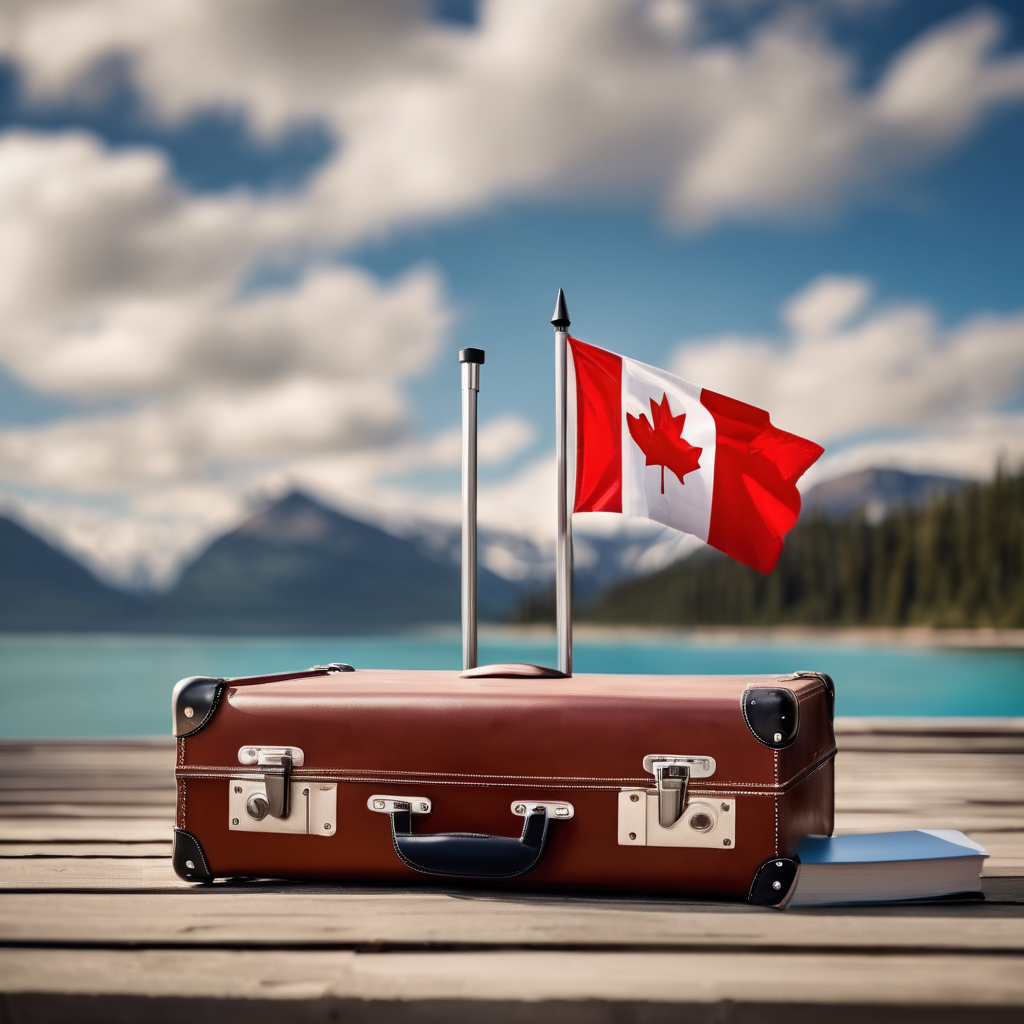Many Canadians are continuing to boycott travel to the United States, which is significantly impacting the U.S. economy. According to a report by the U.S. Travel Association, international tourism spending in the U.S. is expected to decline by 3.2 percent in 2025, translating to a loss of approximately $5.7 billion compared to the previous year.
This downturn in tourism is largely attributed to the decrease in Canadian visitors, a trend that has persisted since U.S. President Donald Trump returned to office in January. This situation escalated with the onset of a trade war with Canada and Trump’s controversial statements about the country, referring to it as the “51st state.” Recent statistics show a dramatic decline in travel from Canada, with a 24 percent drop in air travel and a 30 percent decrease in land travel reported for October compared to the previous year.
Historically, Canadians represent the largest group of international tourists to the U.S., making up 28 percent of the 72.4 million visitors in 2024. Usha Haley, a management professor at Wichita State University, warns that the decline in tourism could jeopardize thousands of jobs, particularly in the labor-intensive tourism sector. “The reduced occupancy in hotels will impact labor demand and that will impact tax collection, which potentially impacts municipal finances,” Haley stated.
Despite Trump’s optimism about mending U.S.-Canada relations, tensions have remained high, especially after he terminated trade discussions in response to an anti-tariff advertisement by the Ontario government. The ongoing imposition of tariffs aimed at correcting the trade balance, despite Canada exporting more to the U.S. than it imports, has further exacerbated the strained relations.
As Americans increasingly travel abroad, the U.S. tourism sector faces a travel trade deficit for the first time, projected to reach nearly $70 billion by 2025. Haley expresses hope that this deficit will prompt the U.S. government to take notice, given the current administration’s focus on trade balances.
Some Canadians are resolute in their stance against traveling to the U.S. this winter. Toronto resident Rena Hans, who owns a condo in Florida, stated she will not visit until Trump is out of office. Many Canadians echoed her sentiments in a recent Angus Reid poll, where 70 percent of respondents indicated they would feel uncomfortable traveling to the U.S. this winter. Concerns about trade relations, political climate, and increased security measures at the border have been cited as top reasons for this hesitation.
While the U.S. Travel Association predicts a rebound in international travel by 2026, influenced by events like the FIFA World Cup and the country’s 250th anniversary, reversing negative perceptions among Canadians remains uncertain.
In response to the downturn, various U.S. states, especially those bordering Canada, are attempting to lure Canadian tourists back by offering discounts and deals. For example, Discover Kalispell, a tourism organization representing a popular skiing destination in Montana, noted a staggering 39 percent decrease in spending by Canadian visitors from January to September compared to the previous year. To combat this trend, the organization has introduced a Canadian Welcome Pass, featuring deals at local businesses that will be available until mid-January 2026.
“As relationship builders, we just wanted to provide a little incentive,” stated Diane Medler, executive director of Discover Kalispell, emphasizing that the community genuinely misses Canadian visitors. The My Place Hotel in Kalispell, which has experienced a 40 percent drop in Canadian clientele, is also offering substantial discounts to Canadian tourists. General manager Bryce Baker noted, “We want to make sure that they understand that we really appreciate [them].”
As these initiatives unfold, there remains a glimmer of hope for rejuvenating the once-thriving travel industry between Canada and the United States, provided both nations can navigate their political hurdles and restore mutual goodwill.
